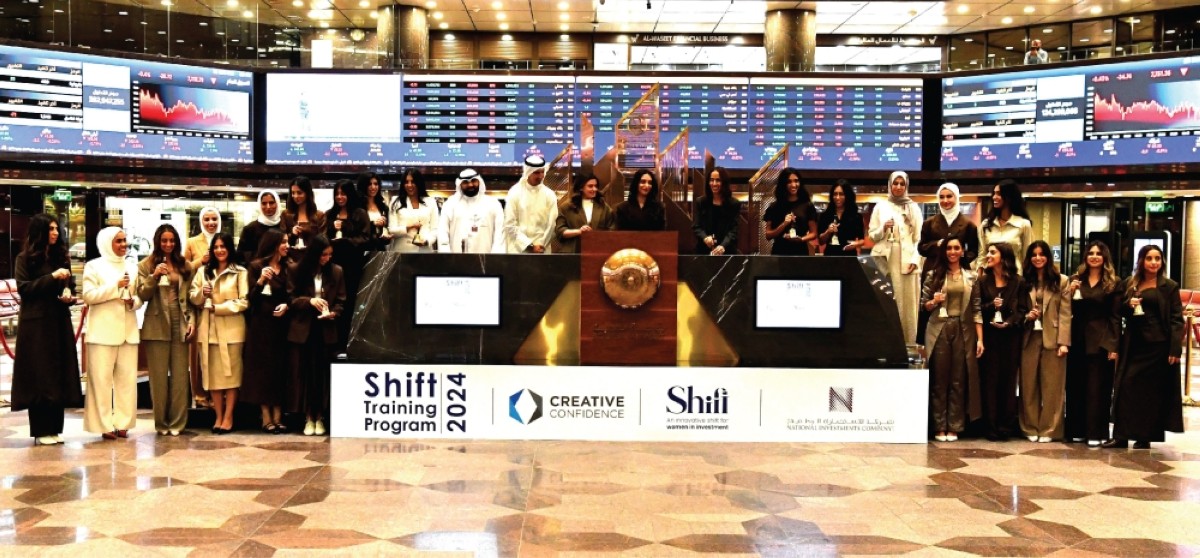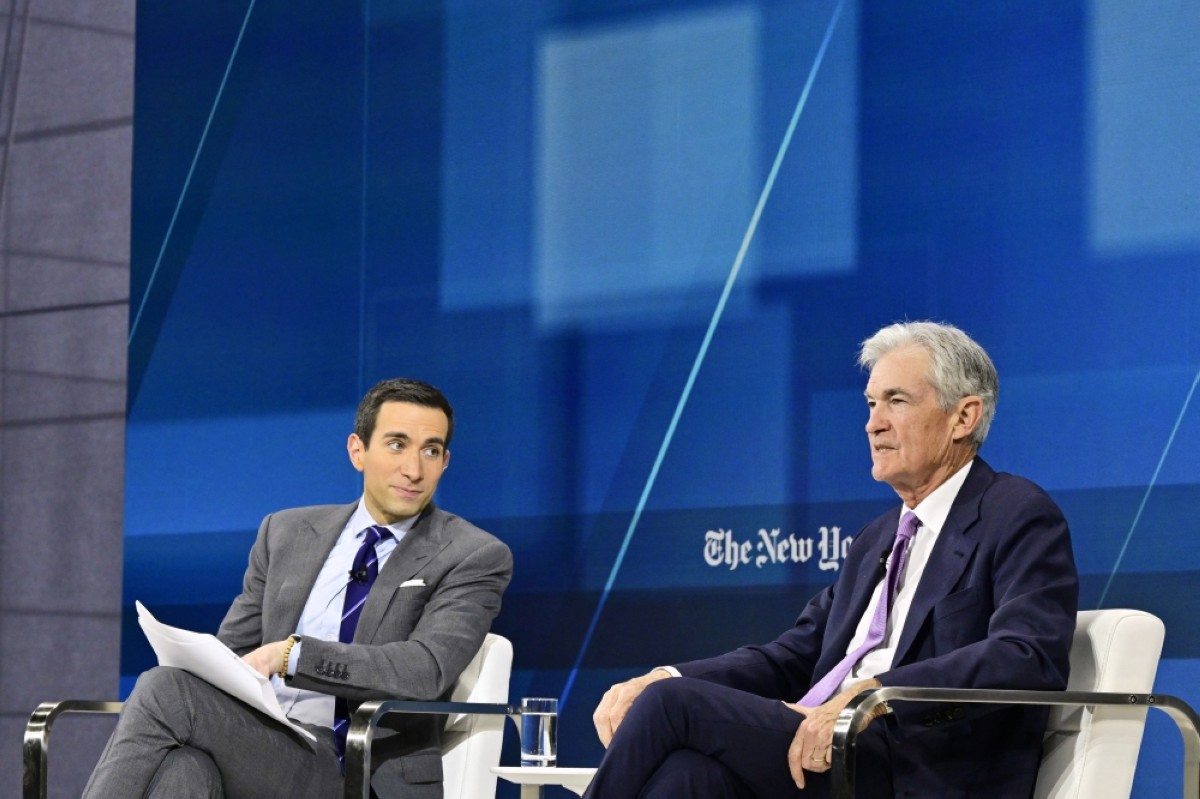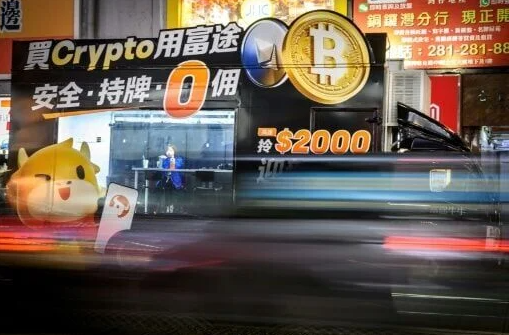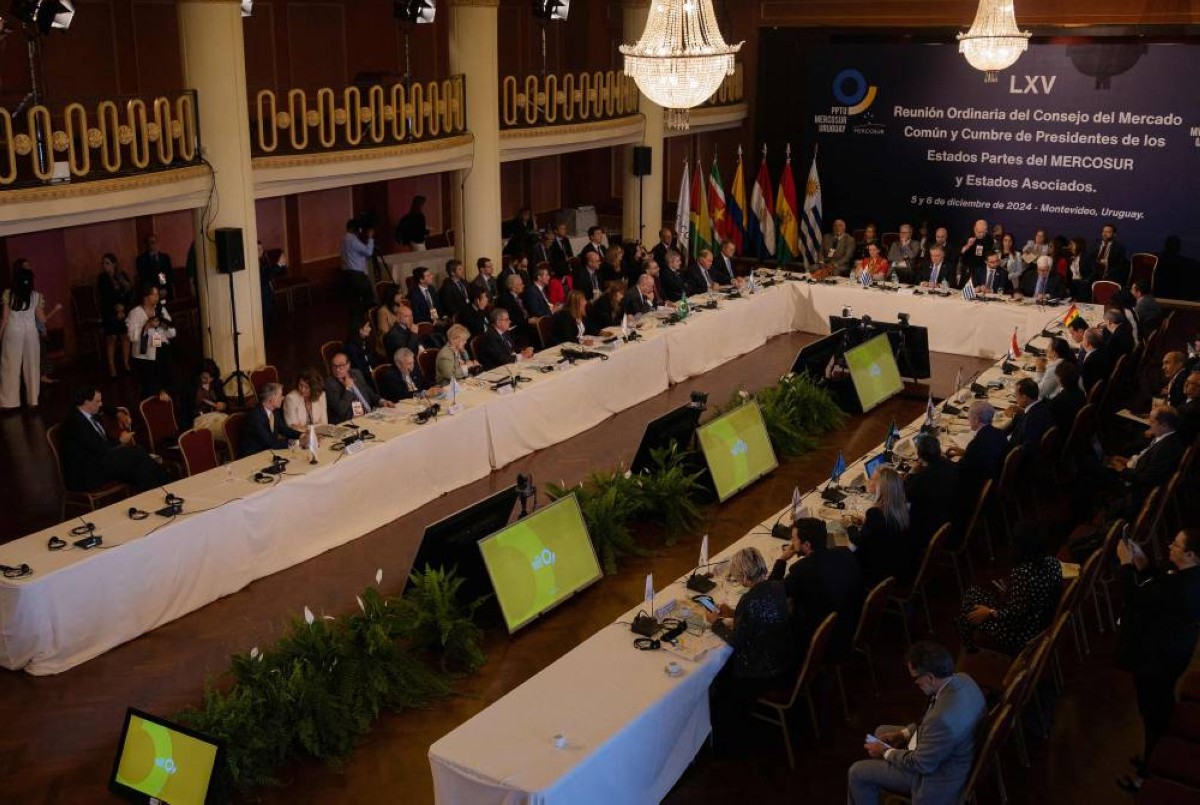Chinese exports grow solidly but slowing imports dim trade outlook
BEIJING: China’s exports grew at their fastest pace in nearly 1-1/2 years in August, suggesting manufacturers are rushing out orders ahead of tariffs expected from a growing number of trade partners, while imports disappointed amid weak domestic demand.
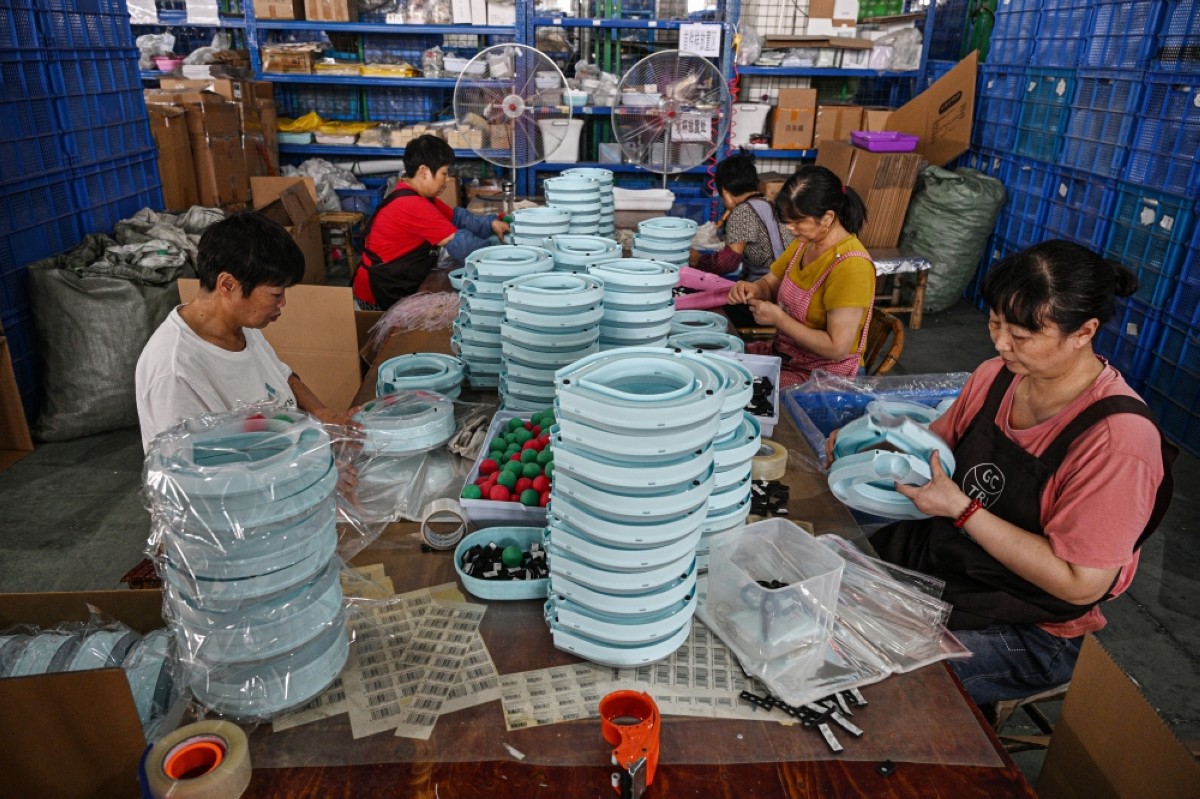
SUQIAN, China: Employees work at a factory producing water dispensers for pets in Suqian, in eastern China's Jiangsu province on Sept 10, 2024. – AFP.
The mixed trade data highlights the challenge facing Beijing as policymakers try to bolster overall growth without becoming too reliant on exports, especially given the tightening of consumers’ purse strings.
China’s economy has failed to fire over the past year amid a prolonged property sector downturn, and a survey last week showed exports in the doldrums and factory gate prices at their worst in 14 months, pointing to producers slashing prices to find buyers. Outbound shipments from the world’s second-largest economy grew 8.7 percent year-on-year in value last month, the quickest since March 2023, customs data showed on Tuesday, beating a forecast 6.5 percent increase in a Reuters poll of economists and a 7 percent rise in July.
But imports increased by just 0.5 percent, missing expectations for a 2 percent boost and down from the 7.2 percent growth a month prior. “The strong export performance and trade surplus are favorable to economic growth in the third quarter and whole year,” said Zhou Maohua, a macroeconomic researcher at China Everbright Bank.
“However, the global economic and geopolitical environment is complicated and China’s exports face a lot of headwinds.” Economists have warned that Beijing risks undershooting its growth target if it becomes too reliant on exports, following a series of lackluster data, raising pressure on policymakers for more stimulus to revive China’s economy. “The continued strong run of exports may actually delay near-term policy support, and we continue to expect bolder measures to be released in Q4,” Nomura analysts said in a note.
Outbound shipments to the European Union grew 13.4 percent in August year-on-year, which represented the biggest increase out of China’s major export markets, followed by an 8.8 percent lift in sales to the Southeast Asian economies. Chinese exports to the US rose by just an annual 4.9 percent last month but imports grew 12.2 percent over the same period, the most of any major import market.
Mounting trade barriers are emerging as another significant obstacle, threatening China’s price-driven export momentum. China’s trade surplus with the United States widened to $33.81 billion in August from $30.84 billion in July. Washington has repeatedly highlighted the surplus as evidence of the one-sided trade favoring the Chinese economy. Brussels’ trade policy has turned more protective too, and Beijing’s efforts to negotiate with the EU to ease tariffs on Chinese electric vehicles (EVs) have made little headway. Last month Canada announced a 100 percent tariff on Chinese EVs, along with a 25 percent tariff on Chinese steel and aluminum.
As China attempts to direct more exports towards Southeast Asia and South Asia, it is also facing pushback there. India is planning to raise tariffs on Chinese steel, Indonesia is eyeing heavy duties on textile imports, and Malaysia opened anti-dumping investigations into plastic imports from China and Indonesia. Still, some analysts expect outbound shipments to ride out the storm, given the relative inexpensiveness of China’s yuan and the relative ease with which exporters can re-route their wares to avoid tariffs.
Meanwhile, China has renewed its offer for talks with the European Commission to address economic and trade frictions to try to ease impending punitive tariffs on China-made electric vehicles. During a meeting with the European Commission’s director general for trade on Monday, Vice Commerce Minister Li Fei said China was willing to engage in dialogue and consultations, his ministry said in a statement. The meeting took place just a day before Reuters reported that the EU was expected to lower its proposed final tariffs on Tesla and slightly reduce rates for other Chinese electric vehicles.
The ministry emphasized that the issue of countervailing subsidies for Chinese electric vehicles was “complex” and presented significant challenges for reaching an agreement.
“China is willing to continue to work closely with the European side to reach a solution that meets the common interests of both sides and is in line with WTO rules, so as to promote the healthy and stable development of China-EU economic and trade relations,” the ministry statement said on Tuesday. China’s renewed negotiation efforts come as it seeks to overturn proposed duties on its electric vehicles. — Reuters.





